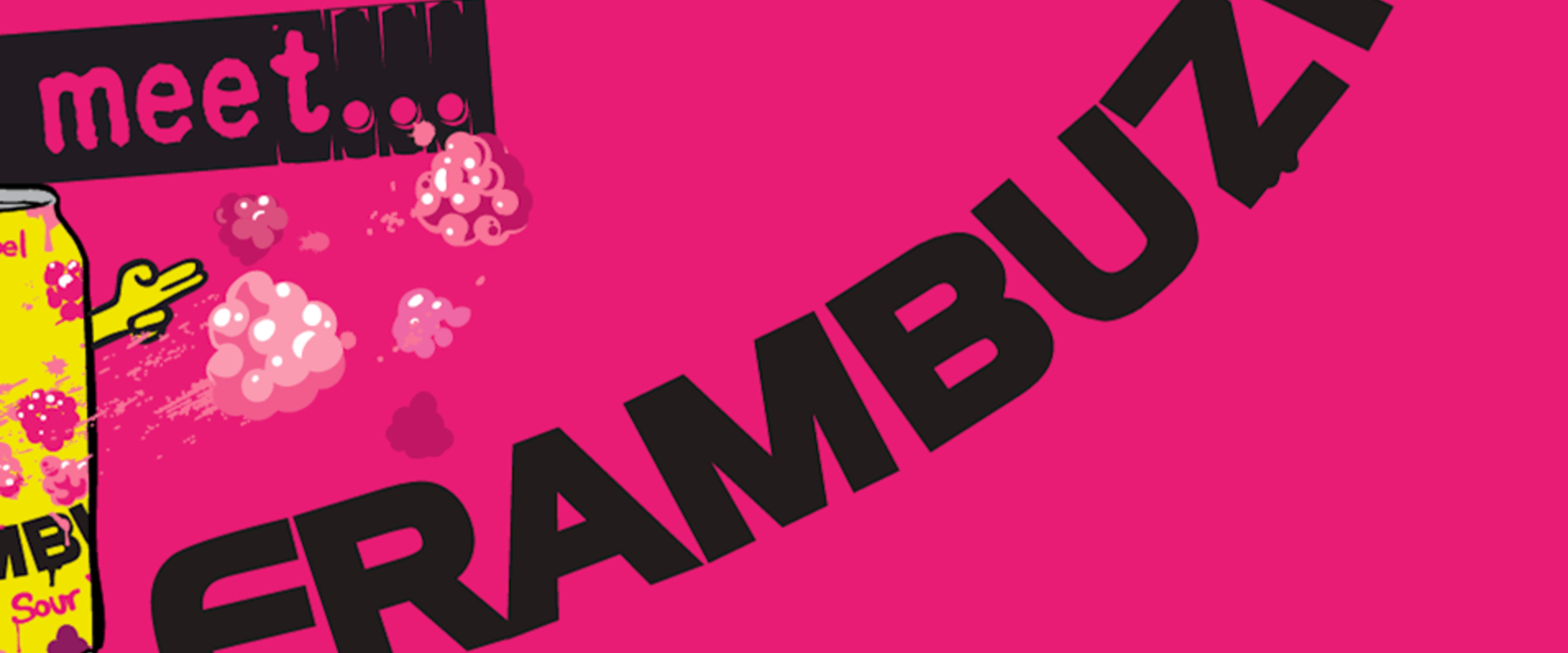
MEET...FRAMBUZI!
We’ve been showcasing each of our core beers over the past couple of weeks. We’ve already covered the original three cans - Cwtch, Cali and Clwb Tropicana - so it’s time to turn our attentions to the newest three beers to come to our can range.
Starting things off is Frambuzi!

Frambuzi was our first foray into the wonderful world of sours. Some of us here at Tiny Rebel are pretty obsessed with sours, but others need a pack of Rennies just thinking about them. Brad has been known to grab a bottle of Boon Gueuze as his train beer while the rest of us are slumming it with a can of session IPA. (No he doesn’t drink it out of the bottle - he’s also been known to buy a glass along with it). So with that love of sours at every level of the company, we had to try our hand at one.
We decided to go with a framboise, a sour with raspberries, to test the waters. The raspberries would give us both a sharp tang and a sweet edge that would balance the flavour a little and make the end beer a little more accessible than pure, face-twisting tartness. A good entry-level brew to this wonderful world.
There are two common techniques to souring beer. The traditional method, made famous by Belgian farmhouse gueuzeries is by way of spontaneous fermentation. The boiled wort is cooled in open vessels rather than sealed fermenters, allowing wild yeasts and microorganisms to inoculate the beer. These microorganisms work on the beer over months or years, gobbling up some of the sugar and alcohol and converting them to acids and flavour compounds which give the beer its delicious tartness. This is how the unique flavour profile of guezues and lambics are developed - slowly, for a rich, deep flavour.
However, we’re pretty impatient. Once we get an idea in our heads, we want to realise the dream as quickly as possible. Plus, we don’t have the beautiful old wooden vessels that develop the unique microscopic cultures that make lambics so great. Thankfully, kettle souring exists.
Kettle souring is the down and dirty way of souring beer. Taking up to two days rather than up to two years, the wort is left in the copper (or kettle) and a cultured strain of lactobacillus is added, quickly replicating what wild fermentation needs months to achieve.
The lactobacillus is raised to plow through the beer quickly, producing a reliable sourness that’s not quite as nuanced as it would be with the slow traditional method. It also means we can achieve more consistency, which is exactly what we need in a core beer - so the “down and dirty” method suits us down to the ground!
Heaps and heaps of plump, tart raspberries are pureed and pitched in as the yeast gets to work on the beer, complimenting the acidic flavour from the kettle souring process. The final product is like having fresh fruits blasted directly into your mouth and bursting with a sharp, tangy, juicy flavour that’s as refreshing as it is sour. The prickle of carbonation and the fruity, sherberty tang make this a spritzy explosion of flavour!
An absolute belter in the summer. Get them in the fridge and they’ll chill down quick, so they’re ready for maximum deliciousness whenever you need a tasty shot to the face.
If you fancy experiencing it for yourself, you can find Frambuzi over on the online shop!
